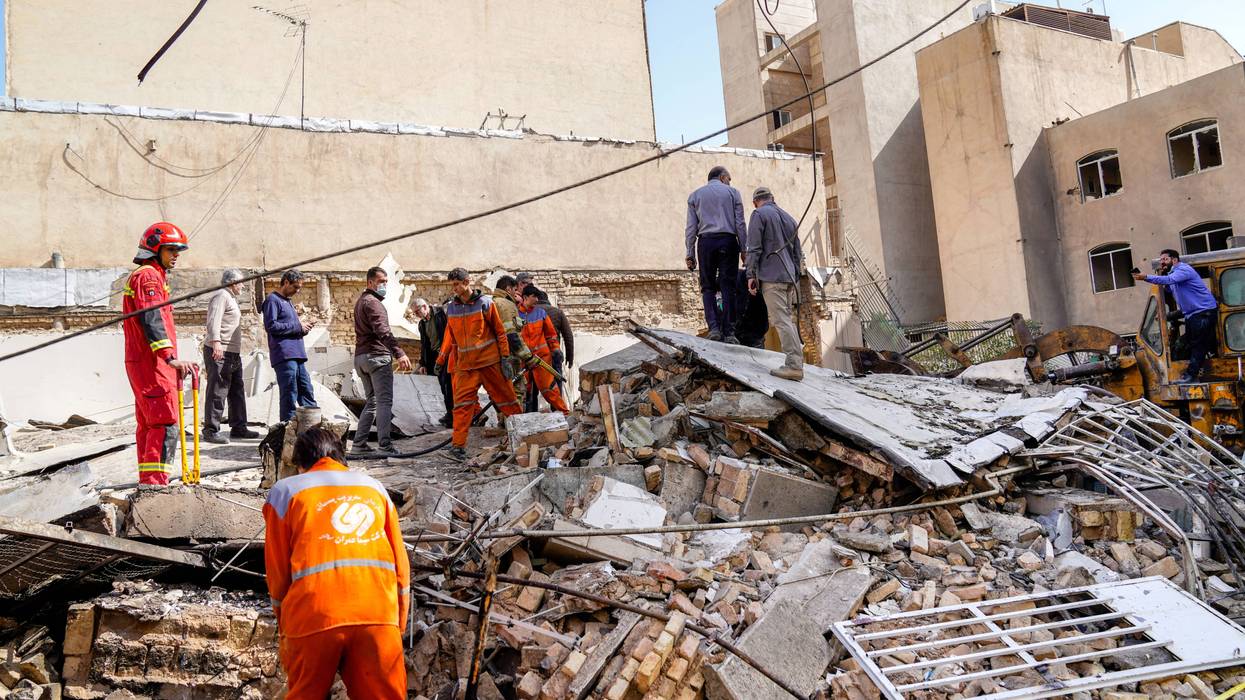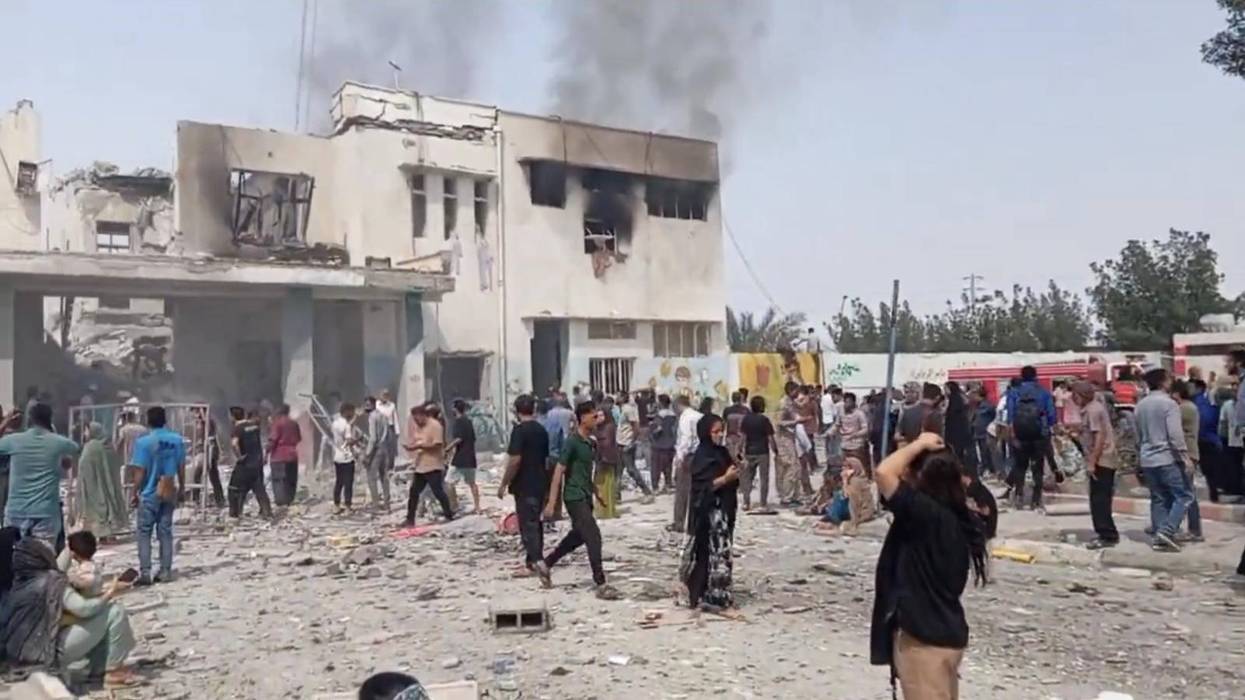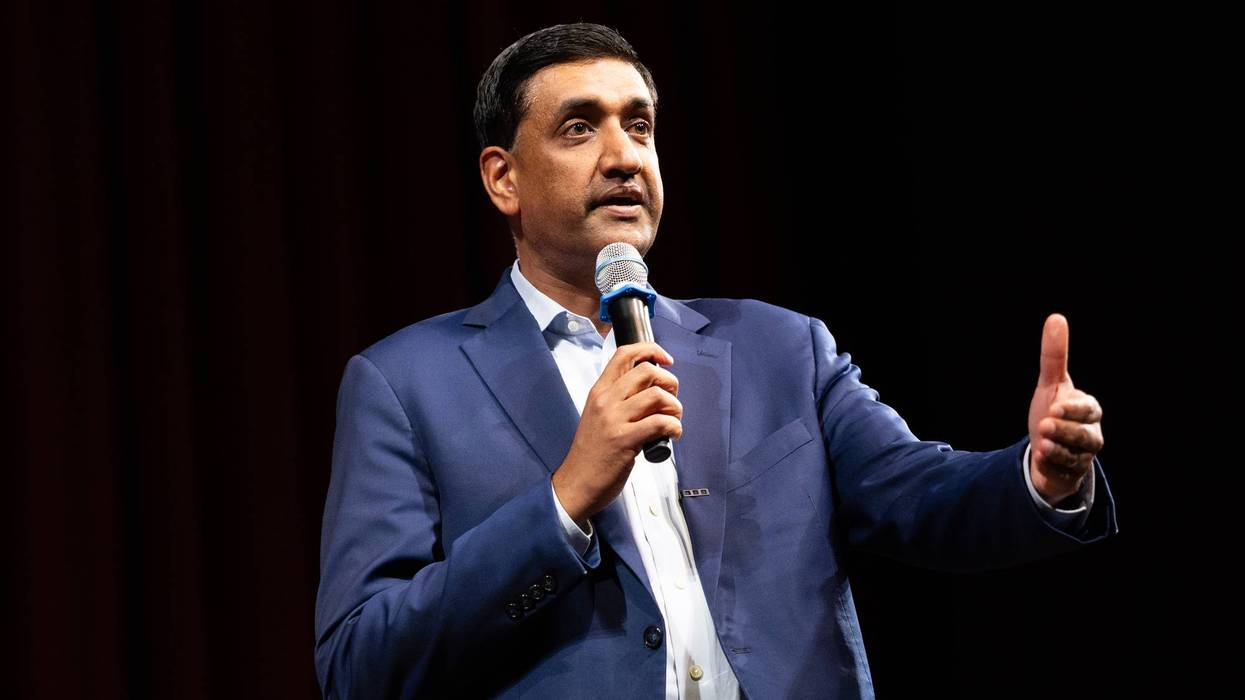April, 07 2010, 01:38pm EDT
As Gun Issue Heats Up, Book Attacks 'Bumper Sticker' Logic of Gun Rights Movement
As coffee giant Starbucks finds itself mired in controversy over guns in its stores; "gun rights" activists prepare to converge on Washington, D.C. on April 19 in an atmosphere poisoned by threats of rightwing violence; and the U.S. Supreme Court considers its second landmark Second Amendment case in two years, one of the nation's leading gun control advocates calls for a new reality-based discussion of guns and violence that rejects the "bumper sticker logic" of the gun lobby.
WASHINGTON
As coffee giant Starbucks finds itself mired in controversy over guns in its stores; "gun rights" activists prepare to converge on Washington, D.C. on April 19 in an atmosphere poisoned by threats of rightwing violence; and the U.S. Supreme Court considers its second landmark Second Amendment case in two years, one of the nation's leading gun control advocates calls for a new reality-based discussion of guns and violence that rejects the "bumper sticker logic" of the gun lobby.
In Lethal Logic: Exploding the Myths that Paralyze American Gun Policy (Potomac Books 2009), Dennis Henigan, Vice President for Law and Policy at the Brady Center to Prevent Gun Violence, systematically analyzes and dismantles the simple, effective slogans that the disciplined messaging of the gun lobby has burned into the consciousness of the American people. Henigan dissects the superficial appeal of such catch-phrases as "Guns don't kill people. People kill people," "When guns are outlawed, only outlaws will have guns," "An armed society is a polite society," and other simplistic themes that have come to dominate the perennial debate over the role of guns in American society. The National Rifle Association, calling Henigan the "most influential thinker" in the gun control movement, wrote that Lethal Logic "presents what will likely be the key talking points for gun control advocates . . . in the coming months and years."
The Starbucks controversy illustrates the growing intensity of the gun debate and the timeliness of Lethal Logic. Invoking "bumper sticker logic" at every turn, members of the growing "open carry" movement of radical Second Amendment advocates have been gathering in restaurants and coffee shops across the nation, with highly-visible pistols and revolvers hanging from their hips.
Unlike other retail chains targeted by the "open carriers," like California Pizza Kitchen and Peet's Coffee & Tea, that reacted by announcing a "no guns" policy, Starbucks continues to allow the carrying of guns into its stores. The Starbucks controversy has received national media coverage, with stories on CBS Evening News, National Public Radio, the New York Times and the Colbert Report, as well as a series in the Doonesbury comic strip.
As the Starbucks gun policy was becoming national news, the U.S. Supreme Court heard its second landmark Second Amendment case in two years - McDonald v. City of Chicago. In McDonald, the Court will decide whether the new Second Amendment right to have a gun in the home - recognized in the Court's 2008 ruling in District of Columbia v. Heller - applies to state and local gun laws like Chicago's current handgun ban. If the Court decides that the Second Amendment right constrains state and local gun laws, it could open the floodgates to hundreds of new legal challenges to state and local gun laws across the country by gun lobby lawyers and criminal defendants.
Lethal Logic is the first book to comprehensively discuss the implications of the Heller ruling for federal, state and local gun laws. It also addresses the National Rifle Association's long-held view that the core purpose of the Second Amendment is to enable an armed citizenry to resist government tyranny - a view echoed today by the rhetoric of rightwing extremists who are threatening violence against those who supported healthcare reform.
Dennis Henigan recently appeared on Fox News discussing the McDonald case and on Laura Ingraham's radio show discussing the Starbucks issue, and has been quoted on the McDonald case in USA Today, the Los Angeles Times and the Christian Science Monitor. His article on the McDonald case - "The Most Dangerous Right" -- recently appeared in the National Law Journal. Henigan also is a regular blogger on Huffington Post.
Lethal Logic has been discussed in articles by New York Times columnist Bob Herbert and New York Times editorial writer Dorothy Samuels. In giving it "4 of 5 stars", Business Week said "Henigan's insights . . . are truly eye-opening."
Brady United formerly known as The Brady Center to Prevent Gun Violence and its legislative and grassroots affiliate, the Brady Campaign and its dedicated network of Million Mom March Chapters, is the nation's largest, non-partisan, grassroots organization leading the fight to prevent gun violence. We are devoted to creating an America free from gun violence, where all Americans are safe at home, at school, at work, and in our communities.
LATEST NEWS
Trump Says Bombing of Iran to Continue 'Uninterrupted' After Reported Killing of Supreme Leader
"For Iranians already suffering under repression, sanctions, and economic hardship, this escalation will mean only more pain," said the president of the National Iranian American Council.
Feb 28, 2026
US President Donald Trump and Israeli officials claimed Iran's supreme leader, 86-year-old Ali Khamenei, was killed in an airstrike on Saturday, along with other senior Iranian figures.
The US and Israeli militaries targeted Khamenei and other Iranian leaders with their opening barrage of strikes, part of an operation that was reportedly planned for months—with the launch date decided weeks ago—even as Trump claimed to be open to a diplomatic off-ramp. NPR, citing an anonymous source, reported that an Israeli strike killed Khamenei.
Trump made clear that Khamenei's alleged killing, which the Iranian government has not confirmed, would not stop the deadly military onslaught, which the US president launched in coordination with Israel without authorization from Congress and in clear violation of international law. The US president said explicitly in remarks early Saturday that his goal was to topple the Iranian government—something that analysts stressed is not synonymous with assassinating the supreme leader.
In a Truth Social post, Trump wrote that "heavy and pinpoint bombing... will continue, uninterrupted throughout the week or, as long as necessary to achieve our objective of PEACE THROUGHOUT THE MIDDLE EAST AND, INDEED, THE WORLD!"
Iran has responded to the US and Israeli assault with drone and missile attacks on Israel and American military bases across the Middle East. The US Central Command said in a statement that there have not yet been any reports of American casualties and that "damage to US installations was minimal."
In Iran, more than 200 people have been killed by US-Israeli airstrikes and around 700 others injured, according to the Iranian Red Crescent, a toll that's sure to grow in the coming days as rescue workers search through rubble. More than 80 people—mostly young children—were killed in an Israeli strike on a school in southern Iran.
Jamal Abdi, president of the National Iranian American Council, said in a statement that "for Iranians already suffering under repression, sanctions, and economic hardship, this escalation will mean only more pain."
“Bombing Tehran will not bring security. It will endanger civilians, place US service members at risk, empower the most repressive and violent elements inside Iran, and destabilize the region for years to come," said Abdi. "Congress must act immediately to reassert its constitutional authority and halt further escalation. The pending War Powers resolutions must come to a vote without delay. Lawmakers must make clear that there is no authorization for war with Iran."
Keep ReadingShow Less
'More Horrific Death and Destruction Will Come,' Warns Tlaib as Israeli Strike Kills Dozens of Iranian Kids
"These acts of war threaten to ignite a catastrophic regional war that will make no one safer while unleashing unconscionable suffering," said US Rep. Rashida Tlaib.
Feb 28, 2026
More than 50 young children were reportedly killed Saturday by an Israeli airstrike on southern Iran as the US and Israel carried out joint attacks across the country. A local official told Iranian state media that "an Israeli missile attack" hit a girls' elementary school in Minab.
Saturday is a school day in Iran. A school staff member told Middle East Eye that "you could hear the sound of children crying and screaming" following the strike.
“We still don’t know how many are under the rubble," said the unnamed staffer. "Some are even saying more than 100. Some of these small children are severely injured. Their parents have come to the school, and this place has turned into a house of mourning.”
Iranian media now report 40 killed and 48 students injured following the strike on a girls’ elementary school in Minab, as rescue and recovery efforts continue. https://t.co/kCR6Gagvip pic.twitter.com/faBFkgFn3D
— Ali Hashem علي هاشم (@Alihashem) February 28, 2026
Iranian Foreign Minister Abbas Araghchi wrote on social media that the school "was bombed in broad daylight, when packed with young pupils."
"Dozens of innocent children have been murdered at this site alone," he added. "These crimes against the Iranian people will not go unanswered."
Al Jazeera noted that "separately, Iran’s Mehr news agency reported that at least two students were killed by another Israeli attack that hit a school east of the capital, Tehran."
“Every war is a war on children," said Inger Ashing, CEO of the global humanitarian group Save the Children. "All children have the right to access a safe education, and schools should always be a haven for children—not a battlefield."
In a statement, US Rep. Rashida Tlaib (D-Mich.) alluded to the Minab school bombing as she condemned President Donald Trump for "acting on the violent fantasies of the American political elite and the Israeli apartheid government, ignoring the vast majority of Americans who say loud and clear: No More Wars."
"The Trump administration and Israeli regime’s illegal war of aggression on Iran has already killed dozens of children, and more horrific death and destruction will come," Tlaib warned. "These acts of war threaten to ignite a catastrophic regional war that will make no one safer while unleashing unconscionable suffering."
“President Trump will pretend this is about democracy and the rights of the Iranian people," she continued. "Don’t be fooled, Trump does not care about the Iranian people. The Iranian people are not pawns for the interests of foreign powers. Our government has imposed brutal sanctions that have destroyed the Iranian economy and the lives and livelihoods of millions of people. You cannot ‘free’ people by killing them and destroying their country."
Tlaib issued her statement shortly after Trump declared in a Washington Post interview that he decided to wage war on Iran to secure "freedom for the people." As of this writing, the White House has not responded to the Minab school massacre. (Update: A spokesperson for the US Central Command said in a statement that "we are aware of reports concerning civilian harm resulting from ongoing military operations. We take these reports seriously and are looking into them. The protection of civilians is of utmost importance, and we will continue to take all precautions available to minimize the risk of unintended harm.")
"I want a safe nation, and that’s what we’re going to have," Trump said as the US-Israeli onslaught hurled the Middle East into chaos.
Tlaib said in her statement that the US Congress "must stop the bloodshed by immediately reconvening to exert its war powers and stop this deranged president."
"But let’s be clear: Warmongering politicians from both parties support this illegal war, and it will take a mass anti-war movement to stop it," she added.
Keep ReadingShow Less
Demanding Action From Congress, Khanna Says 'The American People Are Tired of Regime Change Wars'
"We don't want to be at war with a country of 90 million people in the Middle East," said Democratic US Rep. Ro Khanna.
Feb 28, 2026
US Rep. Ro Khanna on Saturday demanded swift action from Congress to stop the Trump administration's unauthorized military assault on Iran, saying in a video posted to social media that "the American people are tired of regime change wars that cost us billions of dollars and risk our lives."
"We don't want to be at war with a country of 90 million people in the Middle East," said Khanna (D-Calif.), calling on Congress to reconvene for a vote on Monday.
"Every member of Congress should go on record today on how they will vote on Thomas Massie and my War Powers resolution," Khanna added, referring to the Kentucky Republican who is co-leading the measure.
If passed, the resolution would require the president "to terminate the use of United States Armed Forces from hostilities against the Islamic Republic of Iran or any part of its government or military, unless explicitly authorized by a declaration of war or specific authorization for use of military force against Iran."
The White House reportedly only notified some members of the House and Senate Armed Services Committees after the US-Israeli military assault on Iran began. According to Reuters, an Israeli defense official said that "the operation had been planned for months in coordination with Washington, and that the launch date was decided weeks ago."
Watch Khanna's remarks:
Trump has launched an illegal regime change war in Iran with American lives at risk. Congress must convene on Monday to vote on @RepThomasMassie & my WPR to stop this. Every member of Congress should go on record this weekend on how they will vote. pic.twitter.com/tlRi3Vz849
— Ro Khanna (@RoKhanna) February 28, 2026
Days prior to the US-Israeli attack on Iran, the House Democratic leadership announced it would force a vote next week on the Khanna-Massie War Powers resolution following reports that top Democrats were slowwalking the measure behind closed doors.
Senate Democrats also said they planned to vote next week on a War Powers resolution led by Sens. Tim Kaine of Virginia.
In a statement on Saturday, Kaine called the US attacks on Iran "illegal" and said that "every single senator needs to go on the record about this dangerous, unnecessary, and idiotic action."
“Has President Trump learned nothing from decades of US meddling in Iran and forever wars in the Middle East? Is he too mentally incapacitated to realize that we had a diplomatic agreement with Iran that was keeping its nuclear program in check, until he ripped it up during his first term?" Kaine asked. "These strikes are a colossal mistake, and I pray they do not cost our sons and daughters in uniform and at embassies throughout the region their lives. The Senate should immediately return to session and vote on my War Powers resolution."
The chances of a War Powers resolution getting through the Republican-controlled Congress are virtually nonexistent, even though the American public overwhelmingly opposes US military action against Iran. Senate Majority Leader John Thune (R-SD) and House Speaker Mike Johnson (R-La.) both issued statements applauding Trump for the unauthorized Saturday attacks.
Cavan Kharrazian, senior policy adviser to the advocacy group Demand Progress, said that "Trump has no authority to launch another war on his own."
"The Constitution is clear. The need for a War Powers resolution is clear. Congress decides when this country goes to war, not the president," said Kharrazian. "Next week, every member of Congress will have to choose. Side with illegal, endless war, or side with the American people and reject yet another regime change war in the Middle East. Like with Iraq, the choice they make will echo loudly for years to come.”
Keep ReadingShow Less
Most Popular


